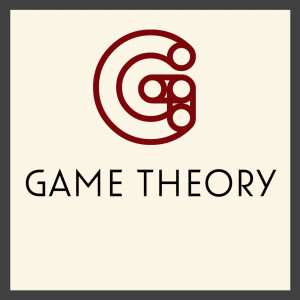
98. Math Confirms Santa is Real; What the Nash Equilibrium Teaches Us About Gift Giving
 2023-12-20
2023-12-20
In this episode, the hosts discuss various Christmas topics, including the mathematics of Christmas and the existence of Santa Claus.
They also talk about their upcoming episodes and milestones. The conversation delves into the philosophical and mathematical proof of Santa Claus, drawing parallels to Descartes' philosophical arguments.
The hosts explore undecidable statements in mathematics and the paradoxes they present.
Finally, they discuss the game theory of gift giving and the concept of reciprocity. The conversation explores the commercialization of Christmas and the impact it has on gift-giving. It delves into the concept of Nash equilibrium and how it relates to gift-giving strategies.
The discussion also touches on the burden of unwanted gifts and the dilemma of giving books as presents.
Additionally, the popularity and influence of the Narnia series are discussed. The conversation concludes with a recommendation to choose fun and affordable gifts.
Takeaways
The mathematical proof of Santa Claus is based on philosophical arguments similar to Descartes' reasoning.
Undecidable statements in mathematics demonstrate that there are some things that cannot be proven true or false.
Gift giving involves more than just economic exchange; the joy and sentiment behind the gift are important factors.
The game theory of gift giving considers factors such as reciprocity and the value of the gift.
The hosts discuss upcoming episodes and milestones, including their 100th episode. The commercialization of Christmas has led to a focus on materialistic gift-giving.
Nash equilibrium suggests that the goal of gift-giving is to receive the most, leading some to adopt a Scrooge-like approach.
Competitive gift-giving can create an upward spiral of reciprocity, resulting in extravagant and sometimes burdensome presents.
Strategies for successful gift-giving include focusing on volume over money and choosing gifts that align with the recipient's interests.
Unwanted gifts can be a burden and may end up unused or discarded.
Giving books as gifts can be challenging, especially when the recipient already has multiple copies.
The Narnia series by CS Lewis has gained popularity among various demographics and is considered a classic in fantasy literature.
Choosing fun and affordable gifts from stores like Hot Topic and FYE can make gift-giving enjoyable and budget-friendly.
Chapters
00:00 Introduction and Change in Schedule
01:25 Christmas Topics and the Existence of Santa Claus
04:03 Upcoming Episodes and Milestones
08:46 Descartes and the Mathematical Proof of Santa Claus
15:21 Undecidable Statements in Mathematics
19:37 The Game Theory of Gift Giving
33:20 The Commercialization of Christmas
35:59 Nash Equilibrium and Gift Giving
36:27 Reciprocity and Competitive Gift Giving
39:44 Strategies for Gift Giving
41:26 The Burden of Unwanted Gifts
43:12 The Dilemma of Book Gifts
46:11 The Popularity and Influence of Narnia
47:36 Choosing Fun and Affordable Gifts
They also discuss the importance of a customized Christmas tree.
Personalize your Christmas tree with homemade ornaments and unique decorations.
Consider the size and shape of your tree when choosing baubles.
Use an online calculator to determine the number of baubles and lights needed.
Embrace the whimsical and fun aspects of tree decoration.
More Episodes
Create your
podcast in
minutes
- Full-featured podcast site
- Unlimited storage and bandwidth
- Comprehensive podcast stats
- Distribute to Apple Podcasts, Spotify, and more
- Make money with your podcast
It is Free
- Privacy Policy
- Cookie Policy
- Terms of Use
- Consent Preferences
- Copyright © 2015-2024 Podbean.com






